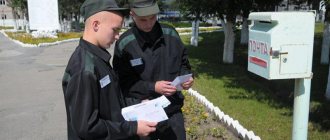Schedule
The daily routine of the inmates in Matrosskaya Tishina does not differ from the generally established rules.
Rise is at 6:00, lights out at 22:00. During the day, sleeping or lying on the beds is prohibited. Inmates are notified about the time of awakening and the need to prepare for bed by a special sound signal.
For a long time, Matrosskaya Tishina was overcrowded, so the convicts had to sleep in several shifts (due to a lack of sleeping places).
Residents' daily routine:
- Breakfast is served at 6:30 (the menu is no different from lunch and dinner, the diet consists of the first, second course and tea).
- Residents are given the opportunity to spend fifteen minutes a week in the bathhouse or take water treatments in the shower.
- Walks are held daily in a specially equipped and protected area (on average, one walk lasts an hour).
- The lighting devices in the cells operate around the clock (after 22:00 they are switched to night mode).
- Cell inspections are carried out daily from 8:00 to 9:00 (during the shift change of the convoy, complaints and wishes of the inmates are collected).
Who is sitting in the "Black Dolphin"? The list of prisoners is on our website.
What it is
The Matrosskaya Tishina prison is located in Moscow on the street of the same name.
Throughout its existence, the isolation ward has repeatedly changed its status and undergone reconstruction.
At the moment, on the territory of the prison there are several buildings, a hospital for prisoners and numerous outbuildings.
According to official information, the area of the cells reaches 12 square meters. meters, each of which houses 3-4 prisoners (in practice, the prison is constantly overcrowded). Particularly dangerous criminals are kept in solitary confinement.
- Prison address: Moscow, Matrosskaya Tishina Street, building 18.
- Telephone number of the duty department.
- E-mail address
- Infrastructure: three secure buildings (capacity up to 2000 prisoners).
- The official name of the prison: Pre-trial detention center No. 1 (Federal budgetary institution IZ-77/1 Federal Penitentiary Service of Russia for Moscow).
Hope for the future
“Matrosskaya Tishina” (pre-trial detention center) has varied reviews. Most often, the quality of medical care provided here is not very flattering. According to many people whose relatives are in isolation, medical care is either not provided in a timely manner or is not provided at all. There is often talk about overcrowding in cells, that is, they contain more prisoners than they should be. This also affects personnel who guard those serving sentences or awaiting their sentence. According to the rules, one guard should accompany no more than four prisoners, but in reality there are between seven and nine of them. The head of the pre-trial detention center is trying his best to change the situation for the better.
How and what to get there
The pre-trial detention center is located near the Sokolniki metro station.
You can get from the metro to the detention center by ground public transport.
Tram 4L stops 120 meters from the metro. You can travel one stop on it. You need to get off at the stop “Malaya Ostroumovskaya Street”, then walk 650 meters.
In addition, from the Sokolniki metro station you can take buses 14 and 41, from which you need to get off at the “Korolenko Street” stop and walk 550 meters. Travel time from the metro by transport will be 10-15 minutes.
At the same time, you can also get to the pre-trial detention center on foot; to do this, from the metro you need to turn right onto Barbolina Street, at the first intersection turn left onto 2 Boevskaya Street, then cross 1 Boevskaya Street and turn right onto Stromykinsky Lane, after which you need to go left along Matrosskaya Tishina Street.
It is there that you can find the Matrosskaya Tishina pre-trial detention center. If you are going to get there on foot, the travel time along the indicated route will be 17-20 minutes.
In addition, the Elektrozavodskaya railway platform and the M-Tov-Ryazanskaya platform are located nearby. You can also get there from the Elektrozavodskaya, Krasnoselskaya, Baumanskaya, Semenovskaya and Komsomolskaya metro stations.
The “Matrosskaya Tishina” pre-trial detention center is located in the center of Moscow. Here, as in any institution that houses prisoners, there are strict rules of conduct for both prisoners and those who visit them.
History of the Strait House from 1775 to the present day:
https://youtube.com/watch?v=5dzgG_PfHtU%3Fecver%3D1
Didn't find the answer to your question? Find out how to solve exactly your problem - call right now:
| Share with friends: |
Did you like the article? Follow site updates or.
Comments:
Advantages and disadvantages
Sending transmissions via the Internet looks like this:
- The sender registers on a specialized website, indicates his data and the recipient’s data.
- From the range of goods offered by the service, you select what you need.
- Using online payment, the shipment is paid for, and the goods go to the recipient in a pre-trial detention center.
The advantages of such a service are:
- Convenience. There is no need not only to go to a pre-trial detention center (which is extremely inconvenient for those relatives or friends who live in another city or even another region of Russia), but even to go to the post office and pack the parcel. There are no queues at all.
- Safety. In the pre-trial detention center there are restrictions regarding the permissible list of products and things that can be transferred “from the outside.” If a prohibited item is found in a parcel or delivery, then in the best case it will be returned to the sender (if the delivery is handed over in person at the reception point of the pre-trial detention center). At worst, unauthorized products or things will be disposed of. With regard to online services, there is no such problem at all: their range is agreed upon with the employees of the Federal Penitentiary Service, and therefore it is simply impossible to purchase prohibited items there and send them to a pre-trial detention center.
- Anonymity. Not everyone wants others to know about their relatives behind bars. To transfer, you often have to ask for time off from work, explaining the reason - and at the post office, when sending a parcel, you have to write down the details of both the addressee and the sender. When sending a parcel through an online service, only the employees of the corresponding online store know about the fact of the order - and they are not interested in the client’s identity.
- Many services do not even require an online bank or money in an account in an electronic payment system (Yandex.Money, QIWI, etc.). In this case, the customer will simply be given a file with a receipt for payment for services, and they can pay in cash at any bank by printing out this receipt. The package will be generated and sent after the transaction is completed.
However, Internet transmissions also have their disadvantages:
- Overpayment. Products purchased in an online store will cost more than if purchased in the usual way. In addition, the shipping itself is also paid for - and will cost more than the usual Russian Post rates.
- The service is not available in all pre-trial detention centers. In order for the prisoner to receive the parcel, it is necessary for the management of the online store to enter into an agreement with the management of the relevant institution. This has not yet been done throughout Russia. However, this shortcoming is quickly corrected.
- The range of goods in online stores is not always wide. This problem is especially relevant before the holidays, when senders literally scoop up goods from store warehouses - and their owners do not have time to replenish stocks (for example, in December 2018, one day there was a situation when on the website "FSINPokupka" for transfer to a pre-trial detention center from non-food items only one towel was offered). Only those goods that are already in stock are sent via the Internet.
- As in any online store, the customer cannot check the quality of the product - and can only rely on the reputation of the seller. Moreover, since the goods are ultimately received not by the buyer himself, but by the addressee in the pre-trial detention center, it will be difficult to timely file a complaint about defective or low-quality goods.
- Not all citizens still know how to use the Internet and have access to it. For the older generation, who do not have the skills to use online services, placing an order and paying for it is often an impossible task.
Reference! However, the service of sending parcels to pre-trial detention centers via the Internet is becoming increasingly popular.
About the scandal with VIP cameras
In December 2021, Matrosskaya Tishina became the subject of a serious scandal, as a result of which several people were removed from leadership positions, some of whom came under investigation.
During the inspection, the POC commission discovered VIP cells in the prison, the arrangement of which was radically different from the standard places of detention for inmates.
It turned out that some of the most dangerous swindlers were serving their sentences or awaiting a court decision in such premises. At the same time, in the main building there is a global overcrowding of the cells (facts of 12-15 people being placed in one cell have been revealed).
Details of the scandal:
- The VIP cells have undergone a major overhaul; each of them has a plasma TV, a refrigerator (products do not pass inspection), good quality furniture, personal baths and toilets, including showers, as well as other household items not typical for detention center or prison.
- Prisoners in VIP cells can use communication equipment uncontrollably (in addition, they are not subject to searches to identify prohibited items).
- Each cell with VIP status contains one inmate (or several, but with their consent).
- When asked by human rights activists about the history of the creation of VIP cells, the detention center referred to donations, most of which were aimed at improving conditions for prisoners.
- It was also explained to human rights activists that all convicted, under investigation or suspects can be held in VIP cells (but in practice this rule was grossly violated).
- After the announcement of information about VIP cells in Matrosskaya Tishina, members of the POC commission were prohibited from inspecting the prison (the event also caused a scandal).
Sailor's silence has repeatedly become the object of scandals and investigations.
Reports regularly appear in the media about fatal torture of convicts, high levels of corruption and other events that negatively affect the reputation of the prison.
About VIP cells for special prisoners in “Matrosskaya Tishina” in this video:
https://youtube.com/watch?v=ReJr_eeb_2U%3Fecver%3D1
Didn't find the answer to your question? Find out how to solve exactly your problem - call right now:
| Share with friends: |
Did you like the article? Follow site updates or.
Comments:
“They torture people, rape cats”: the terrible customs of the Moscow pre-trial detention center
In the investigative office of the pre-trial detention center (now meetings of prisoners with members of the Public Monitoring Committee take place here), a very young prisoner, born in 2001, sits in front of human rights activists. A second-year student from a prosperous family, studying to become a programmer, ended up behind bars for drugs. He admits that he used it himself, but that’s not about that now.
Maxim (let’s call him that, and we gave the full names of him and the other persons involved in his story to the Federal Penitentiary Service of Russia) was recently transferred to Butyrka from the Presnenskaya transfer.
Presnenskaya forwarding. Photo: FSIN-ATLAS.RU
He can already talk about what happened to him relatively calmly. But just recently Maxim was in a terrible state.
“I ended up in pre-trial detention center No. 3 at the beginning of October last year,” says Maxim. – At first I was in a quarantine cell, then the deputy head of the pre-trial detention center Kempel assigned me to cell No. 253.
Besides me, there were three more in cell No. 253. I don’t know the names, but I can describe each one in detail. One of them is a native of Ukraine named Alexey, he is 45 years old, a “second-timer” (by law it is forbidden to keep people arrested for the first time and repeat offenders together - Author ). There were also a Tajik Farukh, 25-27 years old, and an Armenian, 42-43 years old. They didn't touch me for three days. “You’re a guest for three days,” they said. And then it started...
– What exactly “started”?
- Deprived of sleep. At night they woke me up with blows and forced me to drive the “road” (“to drive the road” means to organize inter-chamber communication - Author). It is difficult for healthy adult men to resist. They told me: “We know everything about you. Close the question of money."
– What exactly did they know about you?
- That I am accused of drug charges. Everyone who follows it seems to have to pay a contribution to the “thieves’ movement.” I was billed 500 thousand. They pulled the detention order out of my bag and read everything themselves.
They also somehow found out that I had an iPhone 11 with me during the arrest. “The phone isn’t cheap, so you’ll find the money.” I refused to give out the phone numbers of my parents and girlfriend. I decided for myself that I would not pay anything.
Soon a so-called “overclocking” mobile phone was brought into the cell. He received a call from the guard behind the building, nicknamed Nurik, from cell 410. He said that I had several days to find the money.
– What happened next?
- I didn’t find the money. They beat me. Our camera has video surveillance, but there are blind spots. One of these is near the toilet stall. They usually beat me with part of the toilet door (they tore off a stick from there). They tried to hit the legs so that no bruises would remain on the body and would not be visible during a physical examination.
I tried to complain, try to get to the doctor. But during the rounds, an ensign named Sammat tore up all my statements. My chronic diseases (bronchial asthma, for example) were aggravated by stress, and I needed help.
On October 26, the first attempt was made to abuse me.
- How it was?
– The entire cell was taken out for washing. Farukh attacked me in the shower... I screamed and called for help. The walls there are thick, the employees couldn’t hear. There are no video cameras in the washroom. But thank God that little time is allocated for the “bath”. So the doors were opened and I was able to escape. A few days later there was another rape attempt. I am sure that all this was done for one purpose - so that I would pay the money.
My complaints and letters were not received. More precisely, some of the letters came to my relatives, but the censor crossed out all the places that were about what was happening to me. Psychologists drew attention to one letter. It was about the fact that I don’t know if I’ll live. The censor did not cross it out, he passed it on to them. And that saved me. As a result, I was transferred to cell No. 221 (identified by an officer with the rank of captain named Grach).
- They didn’t beat you there?
– There was psychological pressure there. Kirill (“the second mover”), Anton and Akhmad were sitting there with me. The problems began when, the next day after being moved into the cell, a pre-trial detention center “official” named Samvel called.
– What do you mean “called the camera”?
- There was a telephone there. So after this the complaints began against me. They began to cling to everything. They put me on the rag. Every day I had to clean the cells three times and wash all the cellmates’ personal belongings.
– And all this so that you can finally pay for life in different conditions?
- Yes. Every day they said: “Well, today you figured out where to get the money?” I decided for myself that I would not give them my parents’ phone numbers, no matter what happened to me. It got worse every day. My meeting with the “supervisor” Samvel was being prepared. They said: “You’re interfering with all the thieves here.” Psychologists and psychiatrists saved me again. Thanks to them, I was urgently taken to Butyrka at 23.00.
Now I feel relatively safe. The only injuries left were bruises on my legs. There is something positive in this story.
- And what?
“I developed a certain hatred for drugs, which brought me to jail and because of which I found myself in this terrible situation.
“Cats were raped in front of me”
This story could be questioned if it were not exactly like the one we have already told. Only the criminal characters featured there were different.
Photo: Gennady Cherkasov
Let me remind you that rescue diver Andrei Belenin, detained on January 31, 2021 for drug smuggling, told MK about how he was extorted money in pre-trial detention center No. 3 (the article “Organized criminal isolation” was published in the newspaper “Moskovsky Komsomolets” from June 1, 2020). They stopped torturing him in his cell only after his relatives transferred 500 thousand rubles. He and another prisoner, a businessman named Kucherov (who also paid 500 thousand rubles) were not afraid to eventually file a report with the police.
Pre-trial detention center No. 3. Photo: SIN-ATLAS.RU
The investigation department of the Department of Internal Affairs for the Khoroshevo-Mnevniki district opened a criminal case against Shamilov and unidentified persons under Article 163 “extortion”.
Akhabeg Shamilov is a previously convicted apartment burglar and window keeper, who presented himself in the pre-trial detention center as a “prisoner.” But he was not the only one who organized a criminal scheme to extort money through torture and threats. There was also the “supervisor” Alik and others. Belenin named the card numbers where the money was transferred, the names of other victims, etc.
The diver told us then that the criminals could not have acted without the help of the pre-trial detention center employees (after all, they themselves made the decision to place him in a cell with repeat extortionists). In a letter to me, as a member of the POC, he mentioned, among others, the name of the deputy head of pre-trial detention center No. 3, Kempel.
We asked for an internal inspection of the Federal Penitentiary Service, but so far we have not been told anything about its results, despite publications in the media. We also don’t know whether it existed at all. It is only known that neither Kempel nor the others were punished in any way, and pre-trial detention center No. 3 itself took first place in the ranking of pre-trial detention centers in Moscow at the end of the year.
What is the consequence? - you ask. It went very slowly. As a result, criminal prosecution against Shamilov was terminated on December 12, 2021. And on December 14, the investigator for particularly important cases of the Investigative Directorate for the North-Western Administrative District of the Main Investigative Directorate for Moscow, Yakubov, issued a resolution to suspend the preliminary investigation in this case as a whole. On January 14, 2021, the deputy prosecutor of the North-West Administrative District canceled it. There are chances that the perpetrators will still be brought to justice.
“The Investigative Committee blames everything on the Ministry of Internal Affairs (they allegedly conducted the investigation poorly), says Belenin’s lawyer. – But maybe now they will still collect high-quality evidence and interview all the victims, including new ones? Yet it seems to me that the prospects are dim without political will.
A “thieves’ raid” took place in the pre-trial detention center with this photograph of rescue diver Belenin. Now he fears for his life. Photo: From personal archive
And what now with Belenin, against whom the criminals declared war the day after he dared to write a statement to the police?
Andrey is in solitary confinement for security reasons.
“After the publication in the newspaper, there were “run-throughs,” he says, “with the requirement “to act accordingly when meeting with this person.” It’s difficult to sit alone, but I myself understand that it won’t be easy for any cellmate. They will find an approach to him and ask him - why didn’t he punish Belenin? They give me promises from criminals that they will kill me at the stage or immediately upon arrival at the colony. People allegedly from Shamilov came to my relatives and made threats.
– You told me this back in the spring.
- Yes, I forgot already. Shamilov is free and, as I understand it, can now even count on rehabilitation for his involvement in the case of extortion from me.
– The case has been resumed, don’t rush.
“In any case, it turns out that there is no protection for those who dared to talk about bullying and extortion in the pre-trial detention center. Even here, at the Butyrka special building, “little ones” came to me last year: “You’re sitting out, you don’t want to pay.” As you know (and as a result knows) I paid half a million, but it seems that it’s not enough for them and it will never end. And they always hid behind the name of Shakro (Zakhary Kalashov, convicted in the case of the shootout on Rochdelskaya - Author ).
I believe that in reality these people have nothing to do with the traditional criminal world (we have not found information anywhere about who and how appointed the “officials” and “supervisors” in pre-trial detention center No. 3 - Author ).
I still can’t come to my senses after what happened in pre-trial detention center No. 3. The 37 days I spent there affected me as if I had lived through a war. Do you know what kind of wild pain a person feels when cotton swabs are simultaneously inserted into the ears from both sides and pressed on the eardrums?! Anyone will be ready to sign away the apartment and anything at all, as long as it ends.
After pre-trial detention center No. 3, I was diagnosed with a “personality disorder.” This is also connected with stories about cats.
-What's the story?
“In my presence, cats were raped and dragged into the cell through the window on a noose. The agonistic cries of unhappy animals ring in my ears. It is clear that this cannot be done in a normal state. This was done by drug-addled prisoners. And what happens is that they considered those who end up in 228 not to be people, but they themselves used it right in the pre-trial detention center. When I was there, the officers themselves handed the drugs to the “prisoner” (full name at the disposal of the author).
This publication is a necessary measure. Because if Maxim and Belenin are not in danger yet, then the same cannot be said about the rest of the inmates of pre-trial detention center No. 3. What if every day someone is tortured like this? And what kind of all-powerful patrons do those employees who, it is possible, take part in a criminal scheme? And at least they can’t help but know what’s going on in the cells.
PS During the preparation of this publication, it became known that the Federal Penitentiary Service of Russia initiated an internal audit in pre-trial detention center No. 3.
Reception schedule for citizens
Citizens can get an appointment from 14:00 to 16:00 daily.
Statements from relatives
Relatives can apply for a visit. A sample application can be found on the official website.
Transfers
The parcel can be given to the convicted person on Sunday from 9:30 to 14:00.
Each convicted person in prison has the right to receive no more than 6 parcels per year, that is, a parcel can be delivered once every 2 months.
You can transfer no more than 20 kg of items. Convicts who are in lighter conditions have the right to count on monthly transfers.
You should not transfer items that are prohibited for use in the pre-trial detention center. By handing over such items, you provoke the prisoner to commit violations, which, in turn, will result in disciplinary action.
In addition, you can support the prisoner by sending a parcel. Each prisoner has the right to receive parcels whose weight does not exceed 30 kg per month, the weight of all parcels is summed up.
Dating
According to the law, persons held in pre-trial detention centers are entitled to no more than two visits per calendar month. Visits may include both relatives and other persons. No more than 2 people are allowed on dates.
For each such meeting, it is necessary to draw up documents indicating who can meet with whom. Documents can be processed from Monday to Thursday from 9630 to 16:00, on Friday from 9:30 to 15:00, on Saturday and Sunday from 9:30 to 14:00.
The last Monday of every month is a sanitary day.
Persons who have not provided identification documents, as well as those who arrive under the influence of alcohol or drugs, are not allowed to visit.
Employees have the right to terminate a visit in case of violation of the rules in force on the territory of the pre-trial detention center. Dating takes place on a first-come, first-served basis.
A long date is allowed once every 3 months. If the prisoner is kept in light conditions, a long visit can take place once every 2 months. There is a fee for using the room for long meetings.
It starts at 9 am. The police will allow no more than 2 people, which includes minor children. If a person who has arrived for a long date leaves the room intended for him, then the date is considered to be over. You won't be able to get there a second time.
A convicted person has the right to receive meetings with a lawyer for a duration of 4 hours without restrictions.
Individual appointment
Citizens can get an appointment individually on Tuesday, Wednesday and Thursday from 9:30 to 16:30.
On Tuesday the reception is conducted by the Deputy Chief for General Affairs Oleg Midekhatovich Gafarov, on Wednesday you can get an appointment with the Deputy Chief for Security and Regime Sergei Pavlovich Kozlov, on Wednesday the reception is hosted by the Acting Chief Anton Stanislavovich Podrez.
Basic rules for packing items
The number of parcels that a colony prisoner can receive during the year depends on the regime, as well as conditions, and is determined by Articles 121, 123, 125 and 131 of the Penal Code of the Russian Federation. Along with this, there is a limit on the weight of food, clothing and items that a prisoner can have with him - no more than 36 kg (Order of the Ministry of Justice of the Russian Federation dated December 16, 2016 No. 295).
Russian Post does not accept items heavier than 20 kg.
The permitted dimensions of the boxes are 190*130*350 mm.
To avoid misunderstandings, before sending a parcel to a prisoner via the Internet or mail, check the relevant points with the administration of the correctional institution.
How to send a parcel to a prisoner in a pre-trial detention center or colony:
- Familiarize yourself with the rules for packaging, transfer, and such shipments.
- Pack everything carefully and deliver it to the collection point.
- Pay for shipping, fill out a declaration.
- Receive a receipt with a tracking number.
In the case of online stores, everything is simpler - just select the goods, put them in the cart, and indicate the coordinates of the colony as the delivery address. Before sending a package to a prisoner, read the list of permitted and prohibited products and items.








